What you need to know about women in tech
Well, the gender gap is obvious in the tech industry and I am not going to write here about a “pink revolution” and women in tech who are disrupting the male dominance of the industry and flying the flag for diversity in the process. Forget it. But still, we need to know some data.
Companies such as Facebook and Microsoft released dismal diversity statistics lately. However, a new infographic by Coupofy found that it is not all doom and gloom for women in tech. Data from the top 8 tech companies revealed that as companies such as Microsoft seek to improve their diversity statistics, women in these companies are growing at a rate of 238% faster than men with no signs of slowing down. More tech startups are also being founded by women, having doubled in the past five years. Today it is 20% of all tech startups across the world, including Prowly. On the other hand, women represent only 7% of the 100 richest tech billionaires and only 4.2% of venture capital investors in the US.
A week ago, on International Women’s Day, Inspiring Fifty announced the list of the fifty most inspiring women in European tech for this year. It is not the first such ranking. We have already the Forbes’ Power Women list (published each year), ELLE’s Women in tech, Top 50 Most Powerful Women in Technology announced by the National Diversity Council, Most Powerful Women by Fortune, Most Inspiring Women in the Internet, and many more… The leaders’ names? Here you have the top 5: Sheryl Sandberg (COO of Facebook), Susan Wojcicki (CEO of YouTube), Ginni Rometty (CEO of IBM), Meg Whitman (CEO of Hewlett-Packard), and Marissa Mayer (ex CEO of Yahoo). But the list of women-geeks to follow is longer… Let’s take Weili Dai for example. There are very few women in the technology industry who have reached her level of success.
A woman in tech: personal experience
Dai, the president and co-founder of chipmaker Marvell Technology Group, immigrated to the US from China in 1979 when she was 17. After earning a bachelor’s degree in computer science from the University of California, Berkeley, she worked at several research facilities, including Bell Labs in New Jersey. In 1995, she and her husband, Sehat Sutardja, founded Marvell, where he is now the chairman and CEO.
In a special note to CNN she underlined: “When I co-founded Marvell in 1995, I was the first woman founder of a chip company. Yes, I am a geek. Now 17 years later, I am still the only woman to break that barrier in America. While women make up more than half the world’s population and workforce, less than 29% of »decision-making« positions are held by women globally. Even in progressive Silicon Valley, women still occupy a fraction of the C-level offices and board seats.
All around me there are signs of change: I can count today, as friends and colleagues, a growing roster of women leaders in a wide variety of technology sectors.
But I believe we can do better.”
In her opinion, in the tech sector, it’s a two way street: Women bring unique attributes and strengths to the technology world, and technology is a critical catalyst to the advancement of women in the general economy.
And she is right. Today women don’t talk about the “inner circle” or an “old boys’ club”. They just do their job.
“I am not sure if it was ever some kind of an issue for me,” says Joanna Drabent, CEO of Prowly.com. “I am just doing my job and have never thought about it as something unusual. Actually, I think that we must stop thinking about it this way and start treating it as something completely ordinary. What is the issue? For me, none, since a woman can do anything she wants to for a living.” Personally she thinks that emphasizing the fact that she works in tech, that she is a woman and this is something that she is additionally proud of, is artificial.
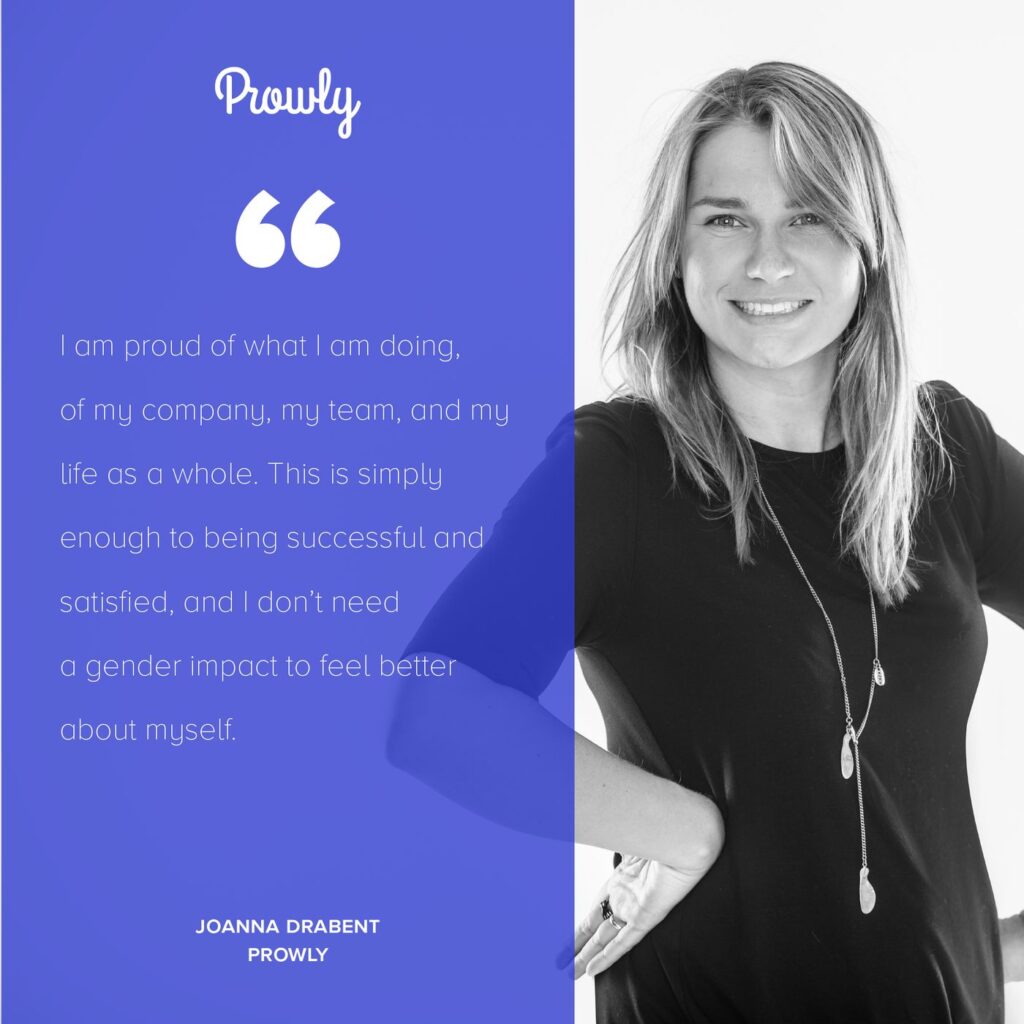
What is the hardest part about it?
For Drabent, it is simple: “Prowly is my first startup, so I need to learn new things every day. We all as a team need to learn extremely fast – otherwise we will grow slowly. I think that the hardest part of running a tech startup is this never-ending race against time”.
Mentors – why they are so important and how to select them?
Smita Mishra, Founder at Fandoro (previously PoolWallet):
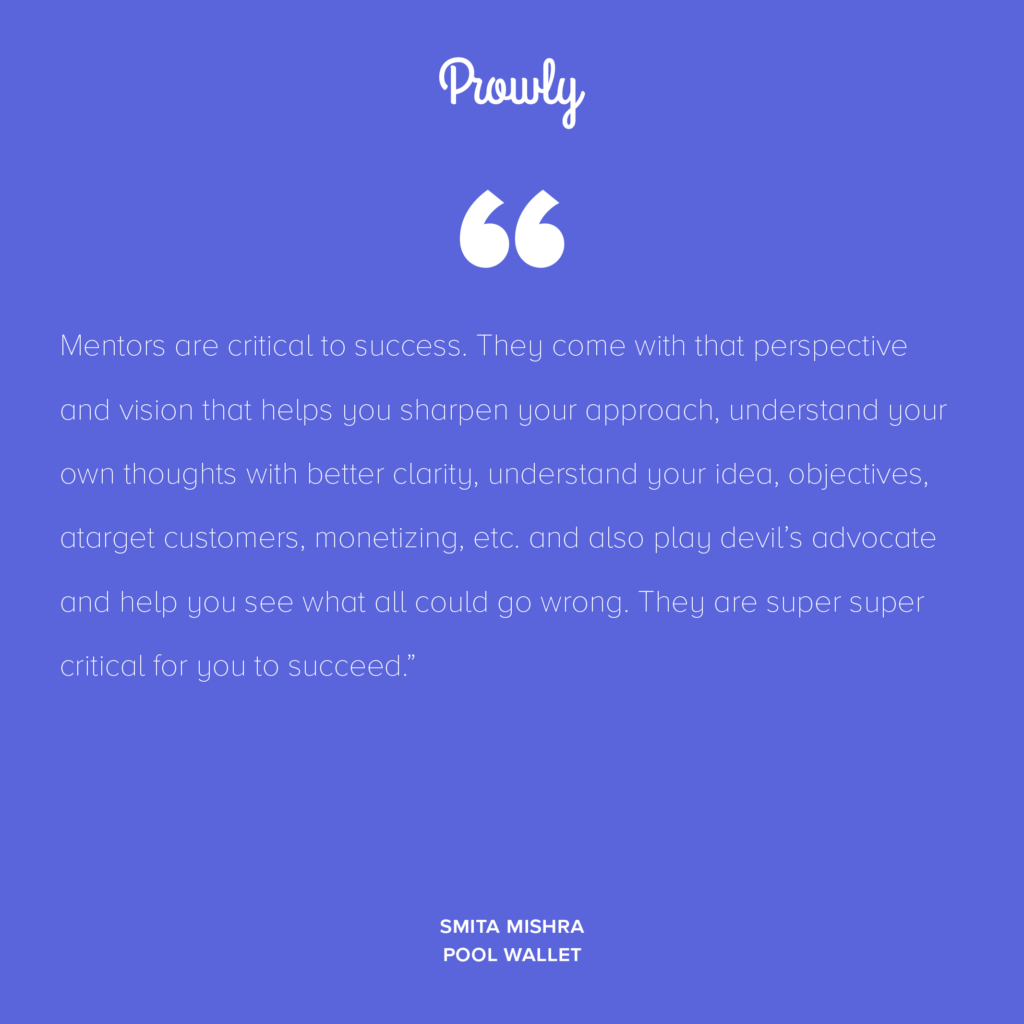
“Mentors could be specialists or generalists.” – Smita says. “They could help you gain insight into multiple aspects of your product or service that you offer – aspects like finding a good hire, connecting with the right problem solver, and finding VCs and investors. Or they could be problem solvers themselves – subject matter experts who help you understand in depth how things work in that domain, or they could even be investors.”
Does she somehow select them? “Sometimes, I want a particular mentor to spend time on my project but they don’t feel excited enough, or I have not been able to sufficiently convince them about the value in my startup and I don’t get to be mentored by them. And sometimes I am generally talking about my challenges within a group and one of the many potential mentors around me stays after the party and continues to work with me on my challenges. They are interested in knowing how I am doing in that direction. They automatically become my mentor. Given a choice, it would work for you if you have a mentor who is super popular and a name in the market. But you may not always be as lucky and sometimes even when you try, you may not end up getting their attention. Try to work with those who are interested in what you are doing and offer you insights. They are precious” – she advises.
When I asked about a founder story that really shows the qualities of an amazing founder that aren’t talked about all the time, Eliza Kruczkowska, ex CEO of Startup Poland, pointed to Elon Musk and his book Inventing the Future. “It brought up one key question: do you have to be a bit reckless to be good? Musk was reckless in two areas: in the risks he took and the way that he manages his companies.” – she explains. I think that…
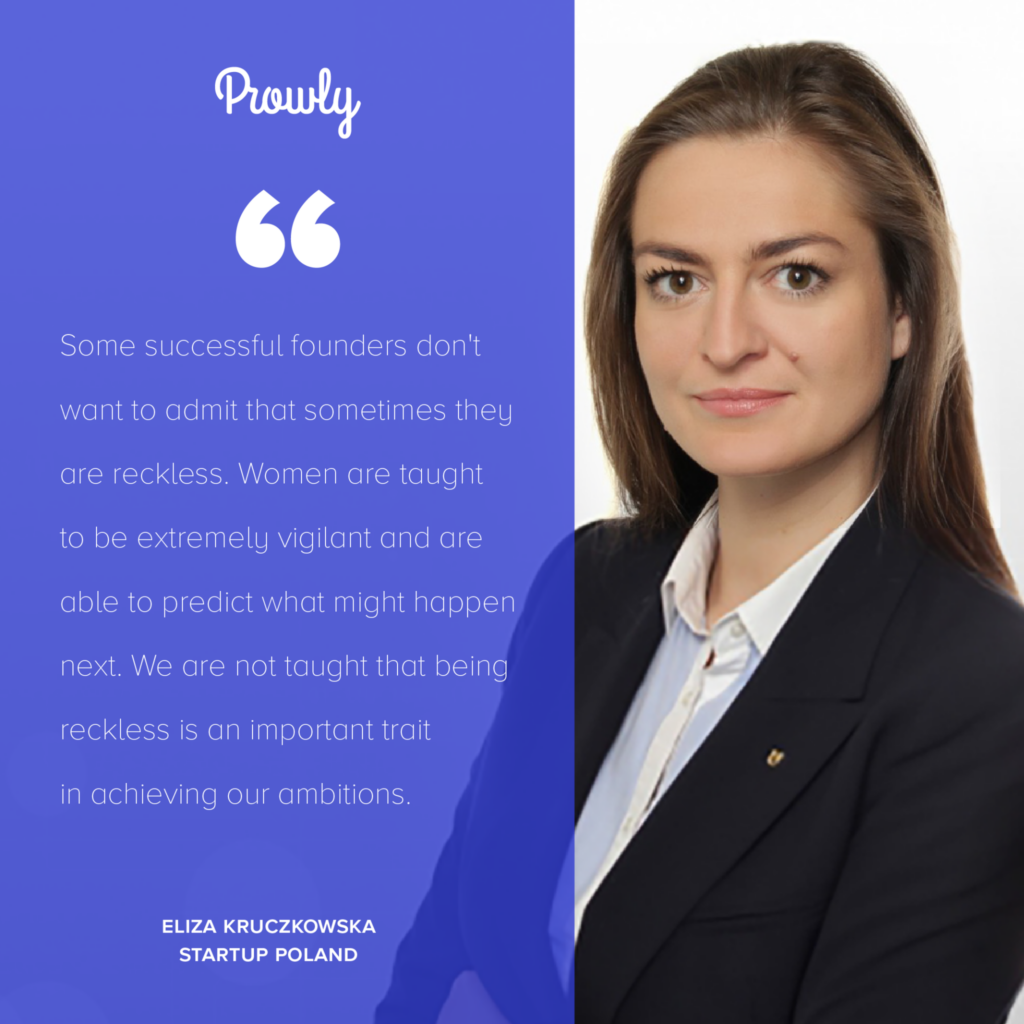
Her best advice for entrepreneurs? Focus, focus, focus: “We have too many distractions around us and I see that some people are wasting time attending a 50th conference in a row instead of finishing their product. And always »stay hungry, stay foolish« as Jobs famously said.”
What three things have surprised you the most about great founders who build great companies?
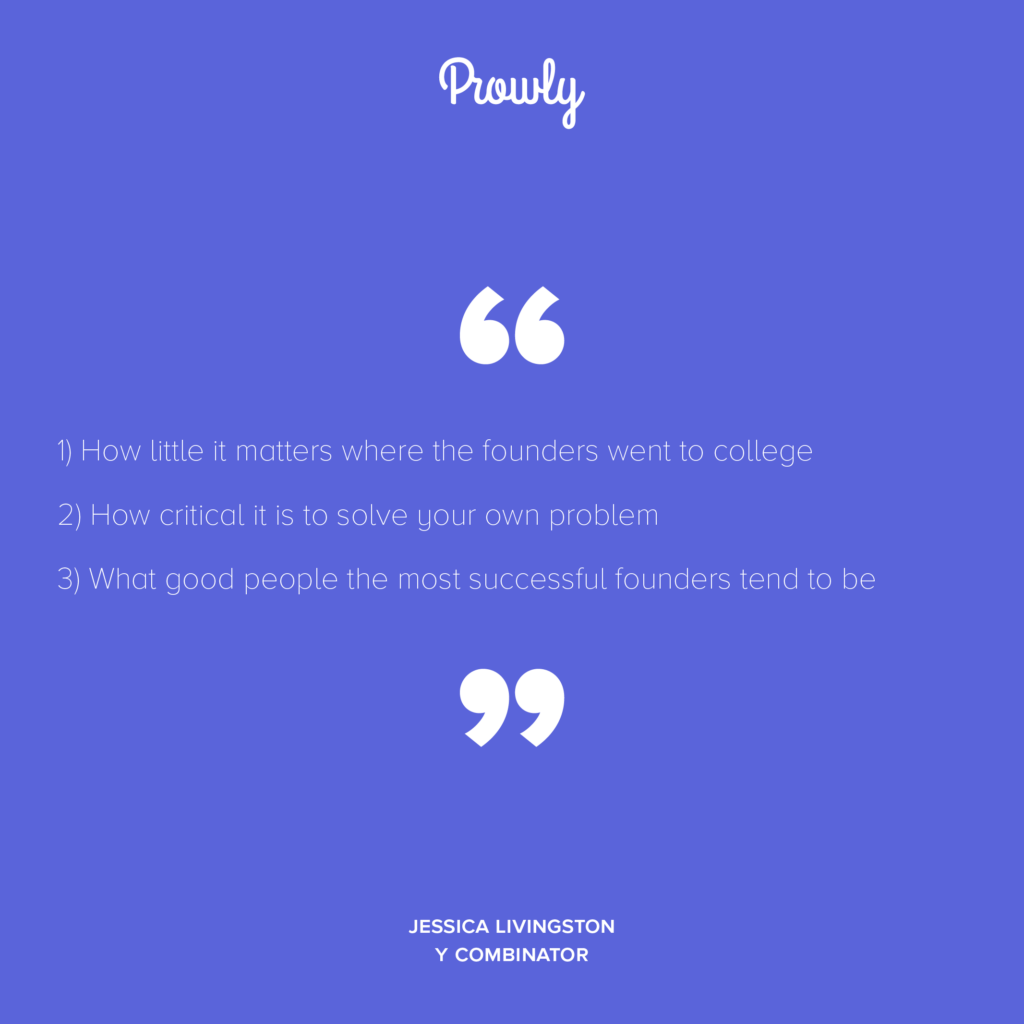
This is how Jessica Livingston, one of the most well-connected women in tech today, answered this question during her LIVE chat on ProductHunt.com. Among tech enthusiasts, she needs no introduction, but to briefly sum up her career: she is a founding partner at Y Combinator, the Harvard of seed accelerators, which since its inception in 2005 has funded over 800 startups valued at over $60 billion.
Beata Young, COO at Hanza Trade, an active figure in the Polish startup scene and a local coordinator for the women in technology group Geek Girls Carrots, points out: “First and foremost, it has struck me that most entrepreneurs talk about luck and how important it was in their ventures. At the same time, they all, to some degree or another, »make their own luck« through persistence. However, a relevant factor is that luck tends to be most prevalent when you have bought the most lottery tickets, ¬ therefore those who in Edison¬ style “hustle while they wait” are enormously »lucky!«”
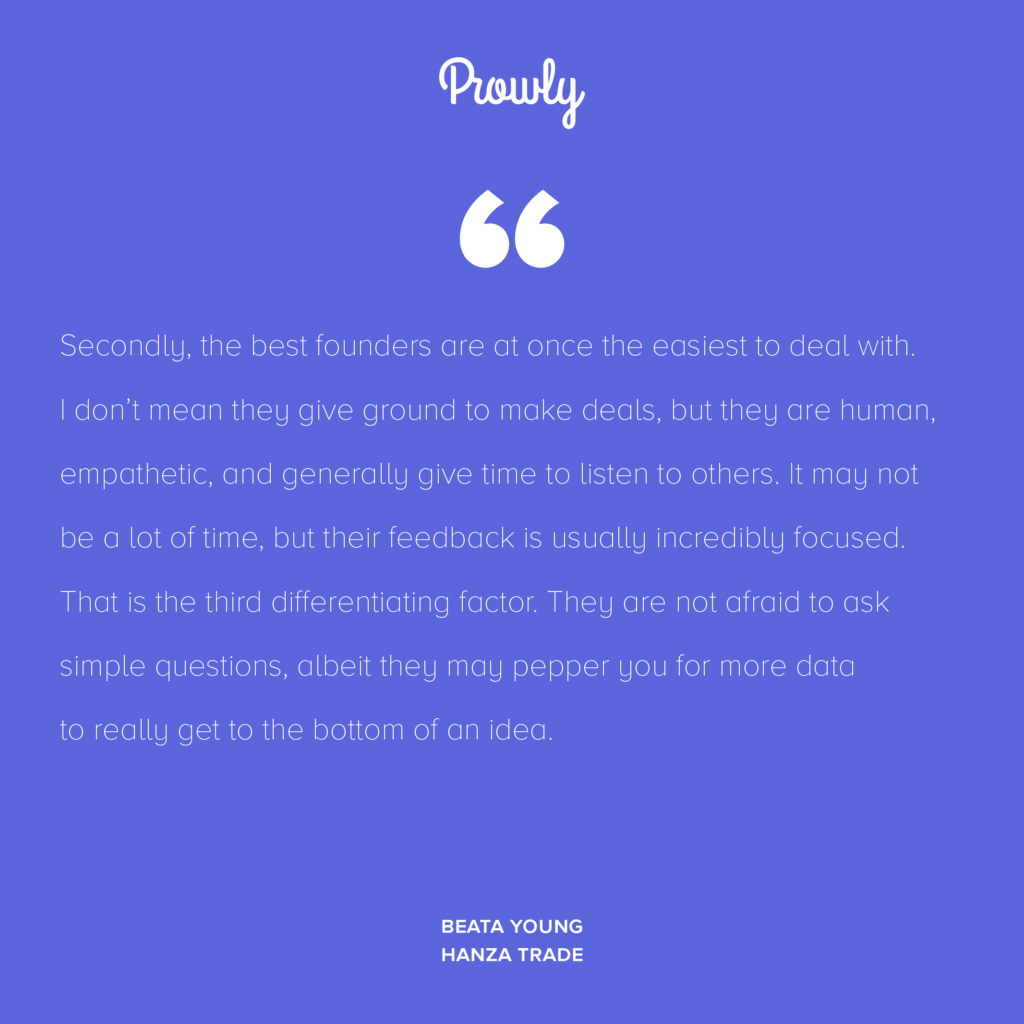
For Mishra, the most surprising are the entrepreneurs’ grit, faith in their abilities, and belief in their dreams, idea, and work:
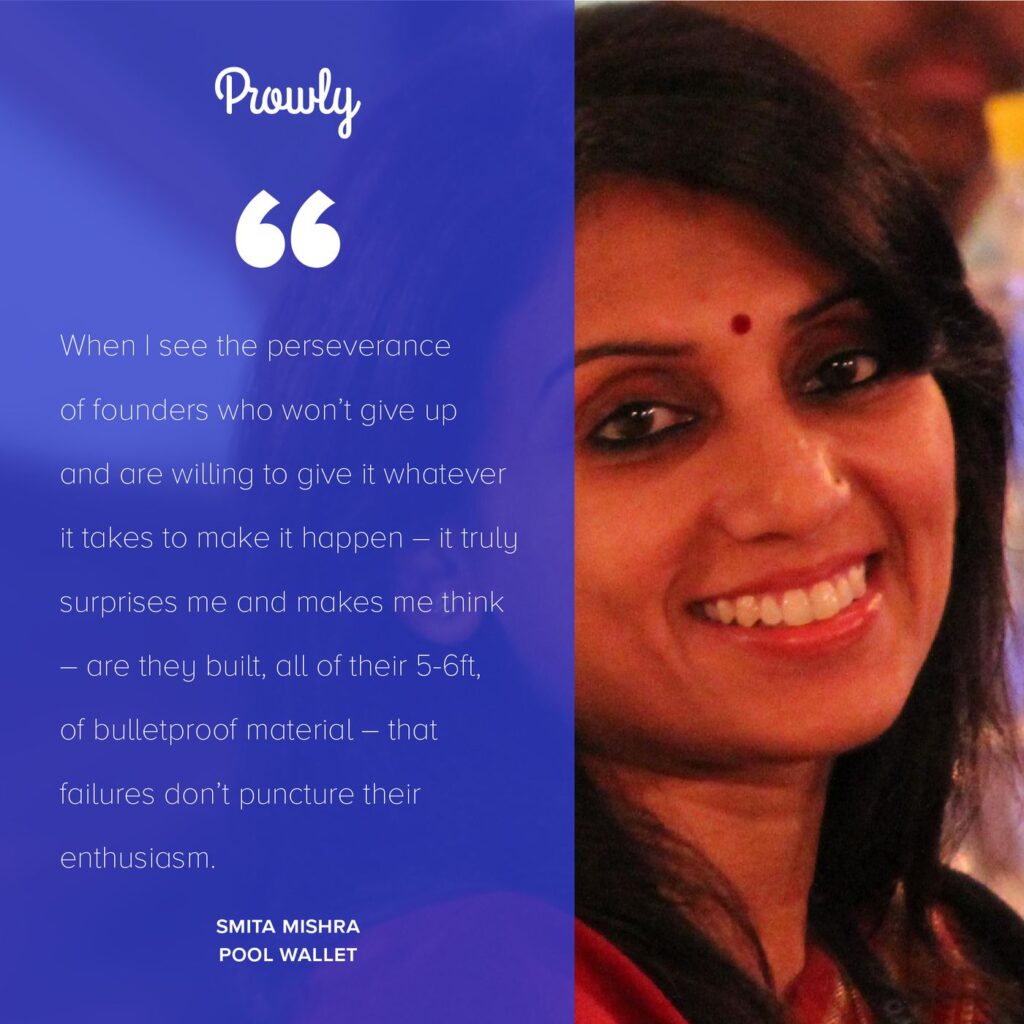
She admires their vision too and puts Elon Musk and Steve Jobs as great examples. “Even if there doesn’t exist a product like this and we don’t know if the customer even needs it. They could look beyond many, and had a clear vision. They knew how they could build the product and then generate the need” – she argues. Julie Meyer, Founder at EntrepreneurCountry Global and author of Welcome to EntrepreneurCountry book, admits that great founders “are humble, but confident; workaholics, but have time for people; no work-life balance, but very happy”.
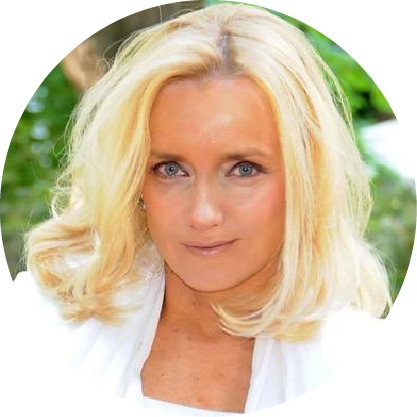
What are the “must-haves” for successful founders and what non-essential things we should let go of?
“Thought leadership and a lot of confidence in the team” – answers Drabent. “A startup as an organization should be based on trust. Instead of micromanaging you need to inspire people to learn new things and give them a sense of self-development. Grow your people to grow your business. Thanks to that attitude I know that today we are a multi-talented team – offering not just software, but also new processes to support communication activities of companies and brands.”
Eliza Kruczkowska, CEO of Startup Poland, confesses that entrepreneurship teaches you a number of things about life in general. “Stories of instant success are rare. Therefore I would say a “must-have” would be persistence.” She quotes Paul Graham, a co-founder of Y Combinator, a startup accelerator in California who once said: “I’ve been surprised again and again by just how much more important persistence is than raw intelligence.”
“Ambition, flexibility, and lateral thinking all help while managing execution. Having created a plan, in turn, is vital to make the leap from having a dream to running a potentially viable startup.” – Young adds. Her experience with Mission ToRun and other fora is that female founders in particular have a tendency to torment themselves with niggling worries such as “am I good enough?” or “is this the right time to start?”
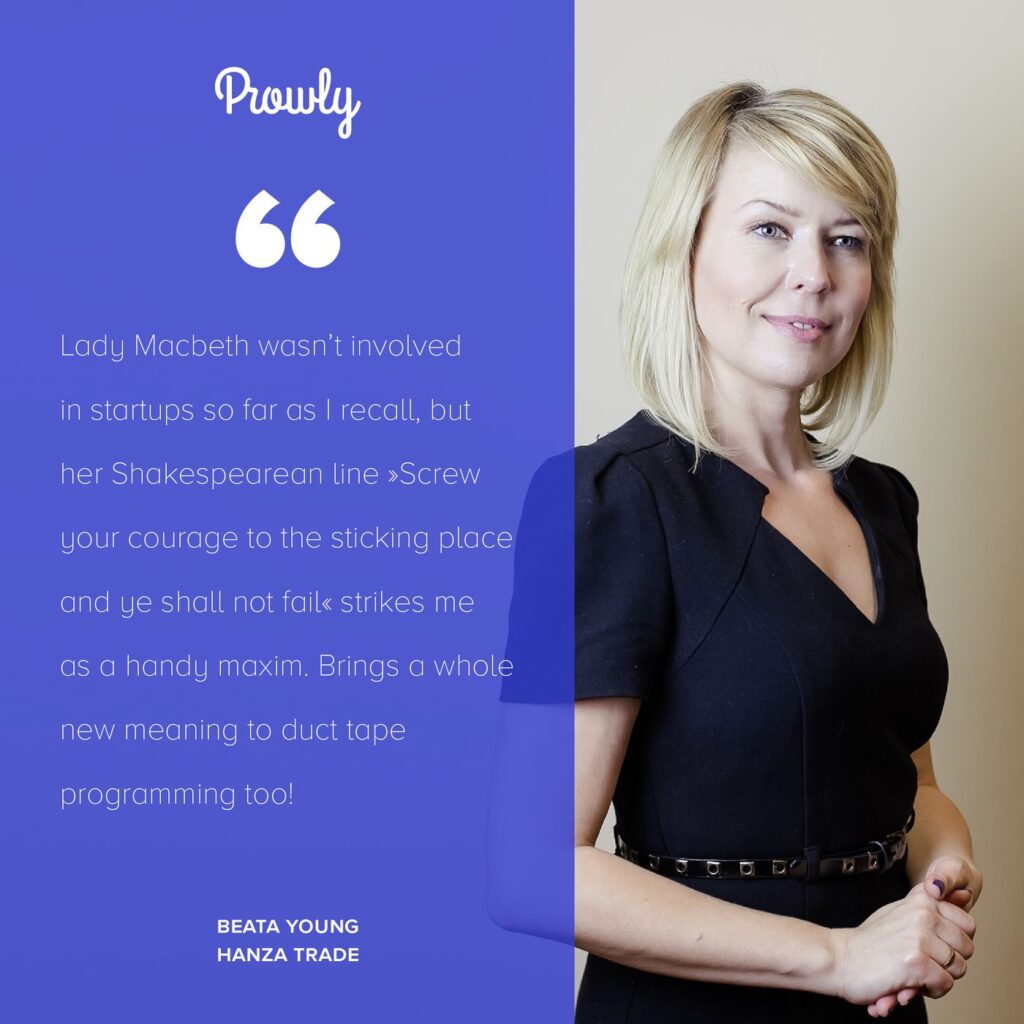
As the great pioneering computer scientist, U.S. Navy Rear Admiral Grace Murray Hopper, said: “A ship in port is safe. That’s not what ships are built for. If you’ve got a good idea, and you know it’s going to work, go ahead and do it.” – she reminds.
Men network, women build friendships
This is a quote I recently found on Twitter. Do women really network differently than men? For me it depends on pragmatism, but there are experts who think there is a major difference. “Men don’t actually network the way women define networking,” says Gail Blanke, a life coach and author of Throw Out Fifty Things: Clear the Clutter, Find Your Life. They do what she calls “a straight shot.”
I asked my conversationalists about it too. Julie Meyer doesn’t have doubts: “I network like hell” – she laughs. “I am not sure I agree that this aspect has anything to do with men and women. I agree I used to think it’s a woman thing earlier. However, now I see an equal number of men/women mistaking friend relations for networking. When we meet someone, a lot of us follow all the steps that are anatomically identical to networking. But when you strip the conversation, one can easily say that inside, the soul of networking was missing. And sometimes, when we lack the true zeal of an entrepreneur, we are likely to have a networking conversation both in terms of anatomy and soul, but we don’t follow up with actions, which is a missed opportunity” – Mishra comments.
Do you think there’s greater recognition today that there needs to be more women involved in tech, compared with when you started your career?
Beata Young believes there are many great initiatives. For example Geek Girls Carrots, Women in Tech, or Lesbians who Tech. “Each is doing great work encouraging the sisterhood to release their inner nerd and be creative in code, just as women are so creative in other walks of life. Nevertheless, women are still under¬represented so there is more work to be done by the existing initiatives and likely some new ones too. At the same time, it was great to see Carly Fiorina, a self-made woman in tech running for president this year in the USA. Her primary campaign was the sort of high level activity which helps prove that digital women are reaching the mainstream! Elsewhere, isn’t it great to see the likes of Joanna Stern as Personal Technology Columnist at the Wall Street Journal? Even in traditionally male dominated tech media, we’re seeing women in high profile positions. That’s the legacy of Grace Hopper and a lot of good old fashioned hard working talent!”
Different roles, different perspective
Innovations in technology and communications have already enabled women to balance their careers with families, allowing greater flexibility in the workplace. Like Dai has already noticed: “In developing countries, female entrepreneurs are empowered by breakthroughs like mobile connectivity and e-commerce websites. This connected lifestyle has not only enabled women to learn but has also created a more enlightened global society better exposed to the idea of women in non-traditional roles.”
Drabent, when asked how she manages her time between being a mom/wife and running Prowly, answered: “Still working on it. My son is two weeks old now, so being a mom is pretty new for me but very exciting! He is like a little startup and I learn him every day. I love my family, my job and I always put all my heart into everything I do, so I am gonna be as best a mom and CEO at the same time as I can. When it comes to time management – well, I am a rather dynamic person so I just got used to the lack of time for everything that I would like to do in everyday life.”
What technology excites you the most right now?
Eliza Kruczkowska admits: “Anyone who pays even a little bit of attention to the automotive industry has an inkling of what the future of driving will look like. For sure driverless cars are coming. What interests me is how governments will handle policy changes – changes to road regulations and car maintenance checks will be necessary to accommodate driverless cars on the roads all over the world. The British government for example wants the UK to become a world leader in driverless technology. New technologies and their impact on regulation interests me a lot.”
Joanna Drabent: “I love technologies that are able to improve the quality of everyday life. Personally, I am fascinated with everything that Elon Musk does: Tesla’s self-driving car and energy storage technology and SpaceX’s travels to Mars. He wants not only to power the world, but also really make it better and safer.”

